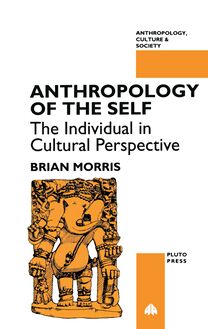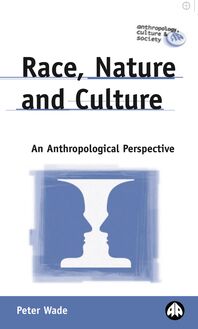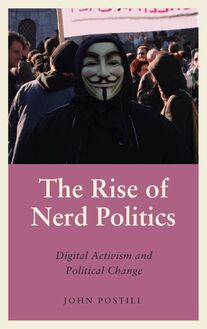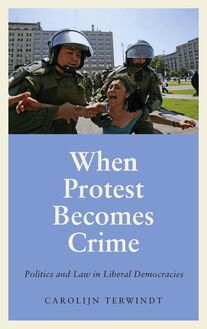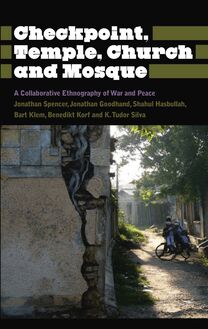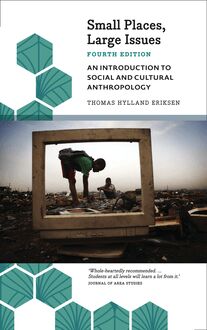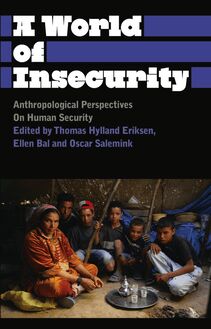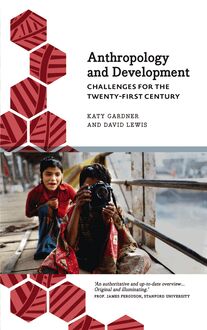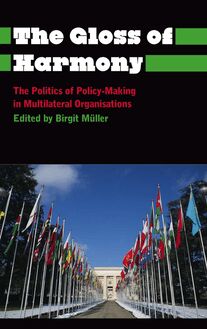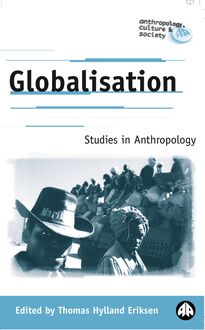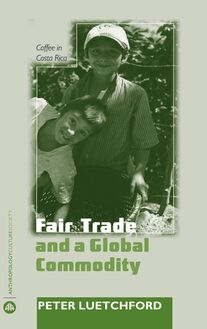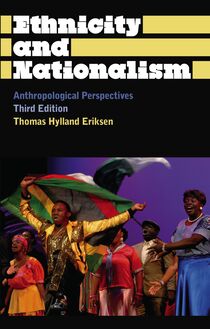-
 Univers
Univers
-
 Ebooks
Ebooks
-
 Livres audio
Livres audio
-
 Presse
Presse
-
 Podcasts
Podcasts
-
 BD
BD
-
 Documents
Documents
-
- Cours
- Révisions
- Ressources pédagogiques
- Sciences de l’éducation
- Manuels scolaires
- Langues
- Travaux de classe
- Annales de BEP
- Etudes supérieures
- Maternelle et primaire
- Fiches de lecture
- Orientation scolaire
- Méthodologie
- Corrigés de devoir
- Annales d’examens et concours
- Annales du bac
- Annales du brevet
- Rapports de stage
La lecture à portée de main
329 pages
English
Découvre YouScribe en t'inscrivant gratuitement
Je m'inscrisDécouvre YouScribe en t'inscrivant gratuitement
Je m'inscris
Obtenez un accès à la bibliothèque pour le consulter en ligne
En savoir plus
En savoir plus
329 pages
English
Obtenez un accès à la bibliothèque pour le consulter en ligne
En savoir plus
En savoir plus

Description
The Izhavas are an ex-untouchable community in the southern Indian state of Kerala. Politically and economically weak, stigmatised as 'toddy tappers' and 'devil dancers', and considered unapproachable by clean caste Hindus, a century ago Izhavas were associated with other manual-labouring untouchable castes. In recent decades they have sought to improve their position by accumulating economic, symbolic and cultural capital through employment, religion, politics, migration, marriage, education and have tried to assert their right to mobility, often in the face of opposition from their high status Christian and Nayar neighbours.
This study examines how Izhavas, through repudiation of their nineteenth-century identity and search for mobility, have come into complex relationships with modernity, colonialism and globalisation. Filippo Osella and Caroline Osella highlight the complexities and contradictions of modern identity, both locally and globally. The authors' approach builds upon and goes beyond a south Asian focus, showing how the Izhavas represent the rise of formerly stigmatised groups who remain at the same time trapped by stereotype and material disadvantage. Absolute mobility, they argue, has not led to relative mobility within a society which remains stratified and prone to new forms of social exclusion.
Acknowledgements
Preface
1. Introduction
2. Working for Progress
3. Marriage and Mobility
4. Consumption: Promises of Escape
5. Religion as a Tool for Mobility
6. Mobility and Power
7. Micropolitics, or the Political in the Personal
8. Conclusions
Glossary
Notes
Bibliography
Index
This study examines how Izhavas, through repudiation of their nineteenth-century identity and search for mobility, have come into complex relationships with modernity, colonialism and globalisation. Filippo Osella and Caroline Osella highlight the complexities and contradictions of modern identity, both locally and globally. The authors' approach builds upon and goes beyond a south Asian focus, showing how the Izhavas represent the rise of formerly stigmatised groups who remain at the same time trapped by stereotype and material disadvantage. Absolute mobility, they argue, has not led to relative mobility within a society which remains stratified and prone to new forms of social exclusion.
Acknowledgements
Preface
1. Introduction
2. Working for Progress
3. Marriage and Mobility
4. Consumption: Promises of Escape
5. Religion as a Tool for Mobility
6. Mobility and Power
7. Micropolitics, or the Political in the Personal
8. Conclusions
Glossary
Notes
Bibliography
Index
Sujets
Informations
| Publié par | Pluto Press |
| Date de parution | 20 décembre 2000 |
| Nombre de lectures | 0 |
| EAN13 | 9781849641029 |
| Langue | English |
| Poids de l'ouvrage | 3 Mo |
Informations légales : prix de location à la page 0,6250€. Cette information est donnée uniquement à titre indicatif conformément à la législation en vigueur.
Extrait
Working for Progress
SOCIAL MOBILITY IN KERALA Modernity and Identity in Conflict
FILIPPOOSELLAANDCAROLINEOSELLA
Pluto Press LONDON • STERLING, VIRGINIA iii
iii
ivSocial Mobility in Kerala First published 2000 by Pluto Press 345 Archway Road, London N6 5AA and 22883 Quicksilver Drive, Sterling, VA 20166-2012, USA
www.plutobooks.com
Copyright © Filippo Osella and Caroline Osella 2000
The right of Filippo Osella and Caroline Osella to be identified as the authors of this work has been asserted by them in accordance with the Copyright, Designs and Patents Act 1988.
British Library Cataloguing in Publication Data A catalogue record for this book is available from the British Library
Library of Congress Cataloging-in-Publication Data Social mobility in Kerala : modernity and identity in conflict / [edited by] Filippo Osella and Caroline Osella. p. cm. — (Anthropology, culture, and society) Includes bibliographical references (p. ) ISBN 0-7453-1694-8 (hardback) — ISBN 0-7453-1693-X (paperback) 1. Ezhavas. 2. Social mobility—India—Kerala. I. Osella, Filippo. II. Osella, Caroline. III. Series. DS432.E95 S63 2000 305.5’13’095483—dc21 00-009109
ISBN ISBN
0 7453 1694 8 hardback 0 7453 1693 X paperback
Designed and produced for Pluto Press by Chase Publishing Services Typeset from disk by Gilbert Composing Services, Leighton Buzzard Printed in the European Union by TJ International, Padstow, England iv
Working for Progress
CONTENTS
Acknowledgements
Preface
1. Introduction
2. Working for Progress
3. Marriage and Mobility
4. Consumption: Promises of Escape
5. Religion as a Tool for Mobility
6. Mobility and Power
7. Micropolitics, or the Political in the Personal
8. Conclusions
Notes Glossary Bibliography Index
v
v
ix
xi
1
38
81
117
154
189
220
247
263 274 287 307
1.1 2.1 2.2 2.3 4.1 4.2 4.3
1 2 3 4 5
17 18 19 21 23
India showing Kerala Kerala showing Alappuzha District and fieldwork location Pre-unification Kerala Valiyagramam showing fieldwork areas, roads and landmarks Valiyagramam showing land types
vi LIST OF TABLES
28 54 55 56 143 144
Social Mobility in Kerala
vi
LIST OF MAPS
Village Population by Community Holdings of Single-Crop Paddy Land (punja) Holdings of Garden Land (parambu) in 1910 Male Primary Occupation Educational Attainments in Labouring Households Education Costs Land Prices146
Working for Progress
DEDICATION
vii
We would like to dedicate this book, first, to our families – who have patiently borne the long separations and bouts of bad temper during writing which mark the anthropologist’s craft – and most especially to our long-awaited and much-loved daughter Anna, who now begins to share the adventures and trials of fieldwork and writing up with us. We would also like to record fond memories of two ‘aunties’ who helped us to make this work happen, and who we very much regret not having the chance to show the final manuscript to: Zia Rina, whose correspondence with us was interrupted when she died suddenly in 1990 in Torino; and Mrs Chandrika, late of Palayam, Thiruvananthapuram, who took us under her wing when we first arrived in Kerala in 1989.
vii
viii
viii
Social Mobility in Kerala
Working for Progress
ACKNOWLEDGEMENTS
ix
A manuscript in preparation as long as this one – rewritten several times and covering seven years of fieldwork – collects many debts of gratitude, only a few of which we can single out here. So let us first offer a general and sincere thank you to the many people in various places who have participated in the work and made it possible. We have received generous financial support for various periods of fieldwork and writing up from the period June 1989 to September 1996 from: the Economic and Social Research Council of Great Britain; the London School of Economics; the Leverhulme Trust; the Nuffield Foundation; and the Wenner-Gren Foundation. We have been affiliated to the Centre for Development Studies, Thiruvananthapuram, Kerala; the Madras Institute for Development Studies, Chennai; and the Centre d’Études de l’Inde et de l’Asie du sud, Paris. We must mention for particular thanks those who guided our studies as undergraduate and graduate students, offering inspiration, advice and encouragement along the way and helping us navigate the vast ocean that is South Asian scholarship: to Chris Fuller and Jonathan Parry of the LSE, heartfelt thanks for everything. Another special ‘thank you’ which must be given goes to Michael Carrithers at Durham, UK. As head of department during our first academic jobs he was always supportive of us, in ways and to an extent which we will never be able to repay: for taking us on as job-sharers, thereby allowing us time to write; for granting special leave to permit further fieldwork; for reading parts of the manuscript; for suggesting new angles to help the work connect to ongoing debates; for general encouragement and advice – sincere gratitude. We also owe particular thanks to those who undertook to read the manuscript in its entirety and comment upon it: Chris Fuller of the LSE, London; P.R. Radhakrishnan of MIDS, Chennai; Thomas Isaac of CDS, Thiruvananthapuram; Yasushi Uchiyamada, of FASID, Tokyo: all of these we thank unreservedly for their most kind help and constructive suggestions. We are also grateful to several colleagues who have read and commented upon parts of the manuscript: Celia Busby; James Carrier; Michael Carrithers; Simon Coleman; Gilles Tarabout. Various parts of it have also been presented to seminars at MIDS, Chennai, at CEIAS, Paris, at LSE, London, at the
ix
xSocial Mobility in Kerala University of Edinburgh, and at the University of Durham. We wish to thank all those who offered suggestions for improvements, while acknowledging that errors and shortcomings remain entirely our own. Recently we have enjoyed material support in preparation of the final manuscript from our home institutions, the Social Anthropology Subject Group at the University of Sussex and the Department of Anthropology and Sociology at SOAS. Cindy Noel and Suzanna Cassidy helped us with vital editorial and proofing tasks and Sue Rowland prepared the maps. Finally, while space does not permit us to mention the very many people in Kerala who have taken us into their homes, spoken with us, met us in their offices, invited us to share their social and familial lives, we would like to mention one particular friend. Anil – Chandrasekhar T. – first met with us in 1989 for Malayalam conversation lessons. He has since helped us on and off with various parts of our research; we have shared some important moments in our lives and now our children – Anna (kutty) and Sanjay (kunja) – are beginning the second generation of a much valued transnational friendship.
x
Working for Progress
PREFACE
xi
This book comes out of a total of three years’ residence in a ruralpanchayatin Kerala, south India. From the beginning of our first fieldwork, we made it explicit to people that the purpose of our residences was study, and that we would be writing about our experiences in ‘Valiyagramam’. We told those who spoke with us that they should have nothing to fear, as anything told us would be in confidence from other villagers; we promised that before publication we would first change the names of, ‘this place and all the people here, so that nobody could understand where it is or who you are’. People have been extremely free with us in giving information and in letting us into the sometimes intimate details of their family lives. This book will certainly be read by some villagers, who may often think that they recognise each other’s stories; we warn Valiyagramam readers that we have changed not only names but also, on occasion, certain other identifying details. To non-villagers, we must also explain that we have changed several place-names: that of thepanchayatand the two villages which comprise it and the names of all junctions, neighbourhoods and temples around thepanchayat. Mindful of the ever-growing tourist traffic which charter flights now bring into Kerala, and the increasing tendency to promote and seek out ever more ‘authentic’ experience (see for example the UKIndependent on Sunday newspaper’s 8.12.96 travel section’s proposition of the Sabarimala Aiyappan pilgrimage as a spectacle of difference), we have also changed the names of several nearby temples. We have also (reluctantly) changed the names of the four major towns between which thepanchayatstands. These changes, we hope, do not detract from understanding of the milieu in which thepanchayatfinds itself; those familiar with the area will easily recognise the approximate location.
xi
Introduction
1
INTRODUCTION
THREE FAMILY STORIES
Ceru Mannattu family
1
In 1990 Advocate Remini suggested, ‘Come and talk to my husband’s brother: he knows all the family history and has time to talk.’ Remini’s work at the district court, her duties aspanchayat member and Congress Party worker, and her practice of moving frequently between her natal home and her husband’s home 5 km away meant that she was difficult to track down. Rather than find her at one of her homes we would more often pass her along the road, driving in her Ambassador car into town, to the city high court, or to the nearby prestigious Puthenkulangara Devi temple where her family worship and make regular cash donations. Remini’s is one of the influential and wealthy families in the south Indian village where we were staying: her father, after military service, had been manager of his maternal uncle’s Nilgiris tea plantation before retiring back to the village in the late 1960s, where he opened a profitable ration-shop. Villagers recalled that not only had the family been the first, in the 1970s, to buy a car, but they had – scandalously – permitted their girls to have driving lessons, a spectacle which other villagers had come out of their houses to see. The eldest of the five sisters had married wearing 25 sovereigns’ (200 grammes) worth of gold jewellery, including a gold waist-chain: commonplace in the 1990s, when dowries often top 101 sovereigns (808 grammes) but rare in the 1970s. Remini herself had married into a similarly well-placed family whose stories we also wanted to hear. Finally, late one rainy afternoon in 1995, preparing to tell us the story of his famous great-uncle, Remini’s brother-in-law sat back on the verandah of the family’s old-style teaknalukettu.Nalukettus, generally inhabited by families from the traditional elite, are increasingly rare these days as once-wealthy families despair of rising maintenance costs and abandon them. Looking not at us but at the large cow-shed opposite, he began to speak in English:
Nowadays you see many families around here with big mansions, but they are all very recently built. Before they built these houses, some of them were living in thatched
1
-
 Univers
Univers
-
 Ebooks
Ebooks
-
 Livres audio
Livres audio
-
 Presse
Presse
-
 Podcasts
Podcasts
-
 BD
BD
-
 Documents
Documents
-
Jeunesse
-
Littérature
-
Ressources professionnelles
-
Santé et bien-être
-
Savoirs
-
Education
-
Loisirs et hobbies
-
Art, musique et cinéma
-
Actualité et débat de société
-
Jeunesse
-
Littérature
-
Ressources professionnelles
-
Santé et bien-être
-
Savoirs
-
Education
-
Loisirs et hobbies
-
Art, musique et cinéma
-
Actualité et débat de société
-
Actualités
-
Lifestyle
-
Presse jeunesse
-
Presse professionnelle
-
Pratique
-
Presse sportive
-
Presse internationale
-
Culture & Médias
-
Action et Aventures
-
Science-fiction et Fantasy
-
Société
-
Jeunesse
-
Littérature
-
Ressources professionnelles
-
Santé et bien-être
-
Savoirs
-
Education
-
Loisirs et hobbies
-
Art, musique et cinéma
-
Actualité et débat de société
- Cours
- Révisions
- Ressources pédagogiques
- Sciences de l’éducation
- Manuels scolaires
- Langues
- Travaux de classe
- Annales de BEP
- Etudes supérieures
- Maternelle et primaire
- Fiches de lecture
- Orientation scolaire
- Méthodologie
- Corrigés de devoir
- Annales d’examens et concours
- Annales du bac
- Annales du brevet
- Rapports de stage
Signaler un problème
YouScribe
Le catalogue
Le service
© 2010-2024 YouScribe
